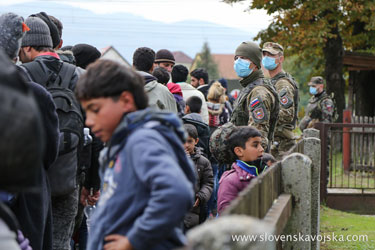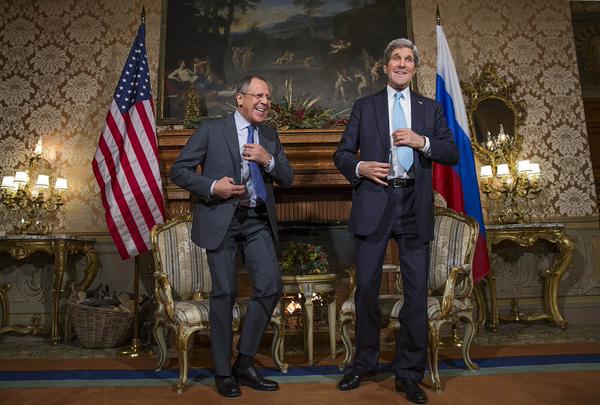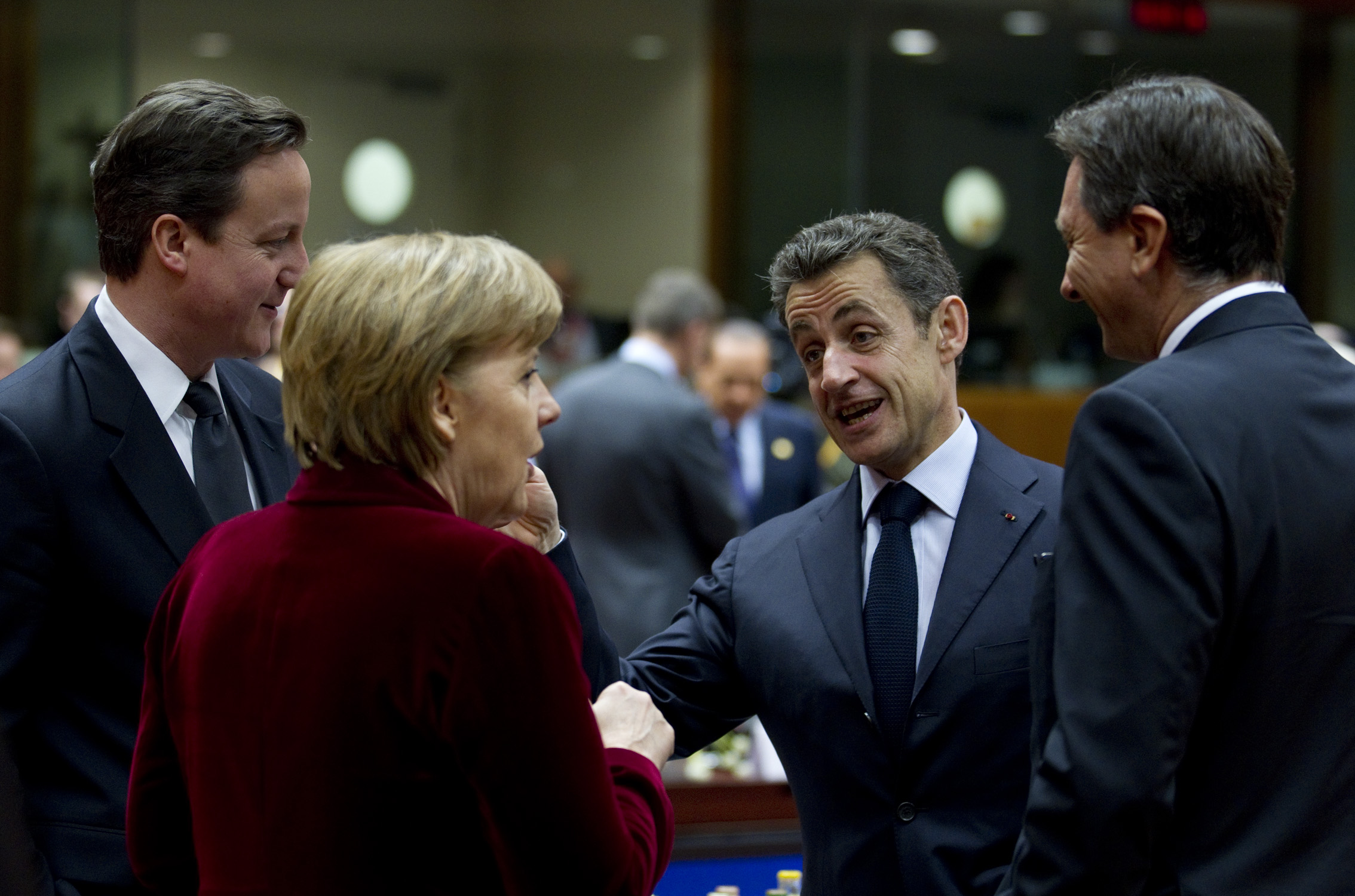Refugees, Russia, Bashar? Europe will really have to choose!

(B2) The conflict in Syria continues. And the Europeans seem helpless. They have, it is true, approached the crisis only in a peripheral way and have locked themselves into a series of contradictory "red lines". Unable to initiate a realistic European policy, in line with the terrain and their capacities, the Europeans are today placed at the foot of the wall, faced with a crucial, difficult, cruel but necessary choice. Do they want to promote a pragmatic solution to the conflict or do they seek to display, above all, their contradictions?
A French but also European absence
What is happening in Vienna right now should ring like a bell. A first meeting was held without an inch of Europeans, with the exclusion not only of the French (a severe setback for the policy of "Fabius" noticed by some colleagues) but also without a British, German or other fingernail. In itself, it is Europe as such that has excluded itself, even as an observer. Between Moscow and Washington, discussions continue. And the next meeting — with a new guest... Iran — should sound like a new gong. (update) The European Union has finally been invited to this meeting - the spokesperson for the High Representative has just confirmed. Meeting which is transformed into a more important forum for negotiation: France and the United Kingdom, as well as Iraq and Egypt, would also be invited to the discussions.
A political illusion
Trying to overcome the refugee crisis, providing humanitarian aid, ensuring repeated support for the UN special envoy are not enough to establish a crisis resolution policy. It's a bad thing. There should be no illusions... The Syrian conflict continues. Bachar after 4 years is still in place. He is unable to win completely but remains there, supported by several States (Iran, Lebanon and today Russia) determined to bring him his help. The Syrian opposition is incapable of forming a counter-government, combining political, military, social and economic action. Terrorist movements hold firm ground. No one really seems able to win on the pitch.
A critical situation
This Syrian situation is critical for the local populations but just as much for Europe. It presents significant risks, direct and indirect, for European stability and security. Firstly, the refugee and migrant crisis will deepen, secondly, the terrorist factory will continue to operate, drawing in Europeans and other nationalities from neighboring countries.
The refugee crisis will continue
This seems inevitable, whatever European officials say. More than 4 million inhabitants - Syrians but also Palestinians who had found refuge in Syria - have already fled Syria. And this movement is not ready to stop. Today there are approximately 8 million internally displaced persons. These displaced persons, if the fighting continues, will also gradually take the road to exile. Doctor Zaidoun al-Zoabi, director of the Union of Syrian Medical Relief Organizations (UOSSM) told Delphine Minoui, correspondent for Le Soir and Le Figaro in Istanbul: “ The situation is terrible, so terrible... Because this time, the conflict has reached disproportionate proportions. There's no more hope »
The European policy of containment convicted
The European policy of "containment" of refugees in the countries of the region has now reached its limits. Lebanon and Jordan are at the maximum limit. And if Turkey has not yet reached its limit, the burden weighing on it (2 million refugees alone) is already significant. It can still welcome refugees and migrants and especially retain those who are them. But this extra effort from Istanbul will not be without consequences for the Europeans. It could be expensive.
A terrorist factory
Syria continues to attract citizens from Europe and Arab countries who come to fight and train. A potential danger in the short and long term. These "combatants" may constitute a new wave of terrorists within European societies, irrigating national societies for several years, even decades, in a way that is undoubtedly more destabilizing in the end than the type of terrorism of the 70s or 80s. it plays more on the fears within each society, stirs up animosities against "the other", and could eventually generate counter-terrorism (in the type of what was experienced in France during the Algerian war FLN vs. OAS).
A hotbed of destabilization
These "combatants" are even more dangerous for the neighboring countries of Europe. The number of fighters from Tunisia and Jordan is greater than the number of Europeans. Their return to these countries would certainly be a particularly difficult challenge to combat. Ditto for the Balkan countries, even if the number of fighters from Kosovo or Bosnia-Herzegovina is more limited, it constitutes another possible source of tension, within a period which may be beyond the short term but in the next ten years. This danger should not be minimized. Because the fight against terrorism leads to a hardening of societies, attacks (accepted or not).
Review the "Syrian" dogmas
Several dogmas today underpin the European position on Syria. We could also speak of a "non-position".
1° No to Bashar ! Position essentially supported by France for enigmatic reasons, which have more to do with a messianic desire (to change power in Syria), ultimately closer to the Bush-Blair position in Iraq in 2003 and the Sarkozy-Cameron position in Libya in 2011 than the traditional French line De Gaulle-Mitterand-Chirac. This position held by Laurent Fabius was nuanced, very recently, by François Hollande (read on B2 Pro: A European position on Syria defined at 28).
2° No to Russia ! Position essentially supported by certain Eastern countries (and not all): Baltic countries, Poland (even more so if the PiS, Law and Justice, wins today in the elections) and Romania, linked to fear (justified ) by the hardening in Ukraine. But totally inconsistent in the Middle East and the rest of the world. Europe does not have the means to wage "war", even political and economic, against Russia for too long a period.
3° Daesh is the number one enemy ! Position supported by the most committed countries. Incidentally, today we would almost absolve Al Nusra, a branch of Al Qaeda, yet considered a few months ago as the supreme enemy number one, and other more discreet terrorist movements which nevertheless appear on the list of the UN and are perhaps just as dangerous in the long term.
4° No to a military solution, Yes to a political solution. An obvious, generous position, which however comes up against an immediate contradiction: several European countries are today engaged in a series of strikes not only in Iraq but also in Syria. Until further notice, a military strike, repeated over and over, is not really a political solution 🙂
This addition of red "No" lines, which some European countries have but which are not shared by all, blocks any progress. Fighting at the same time against Bashar, against Daesh, against Russia and promoting a political solution is rather contradictory and also explains the failure. Hence a certain ambiguity in the position of the High Representative of the EU, obliged by her function to reflect this (bad) compromise between Europeans but also tempted to make a certain voice of reason prevail, to change the positions. The interview Federica Mogherini gave to B2 is enlightening on this subject (read: Europe is ready to play a role in Syria (Fed. Mogherini)). Because, between the lines, it initiates what could be a new, more realistic European position vis-à-vis Russia and the future Syria.
A necessary choice
Europeans today simply have to play politics. That is, to choose. In this area, there are no good or bad choices, a balance between values and interests. It is a choice between certain interests, certain values, certain positions, certain evolutions, between the short term and the long term.
Are they seeking to resolve the Syrian conflict as quickly as possible? Which presupposes arriving fairly quickly at a general ceasefire, an armistice — that is to say, a “bad peace”” — in Syria.
Or do they seek to find a solution by force? Which, barring a major surprise, presupposes the prolongation of the conflict. Knowing very well that Europe does not really have the means to hold a high intensity conflict on its own without clear and powerful American support (this is not guaranteed today).
Do we choose hostility to Russia? Knowing very well that Moscow now has several cards in hand and that the agreement with Washington is one of them.
Do we persist in making Bashar's expulsion a condition? Which is morally laudable but unrealistic. This is not the first time that we will make a pact with the devil to bring stability to a crisis zone by betting on a long-term transition (cf. the Dayton agreements and the negotiations started with Milosevic).
You have to choose... The Europeans have to do it quickly. Because the temptation could be great that Washington and Moscow agree at least technically. Officially, they will not agree on all the elements of the solution but agree to seek one together (as in the good old days of the Cold War). The Europeans were already excluded from the meetings in Vienna last week. Which, in itself, is a first. This exclusion should sound like a serious warning to their ears. Otherwise they will only be invited to the table for the next negotiations to attest to the agreement reached between the American-Russians and to go to the cash register to write a large check to the Syrian reconstruction... carried out under the aegis of Bashar. Which would be a shame!
(Nicolas Gros-Verheyde)


